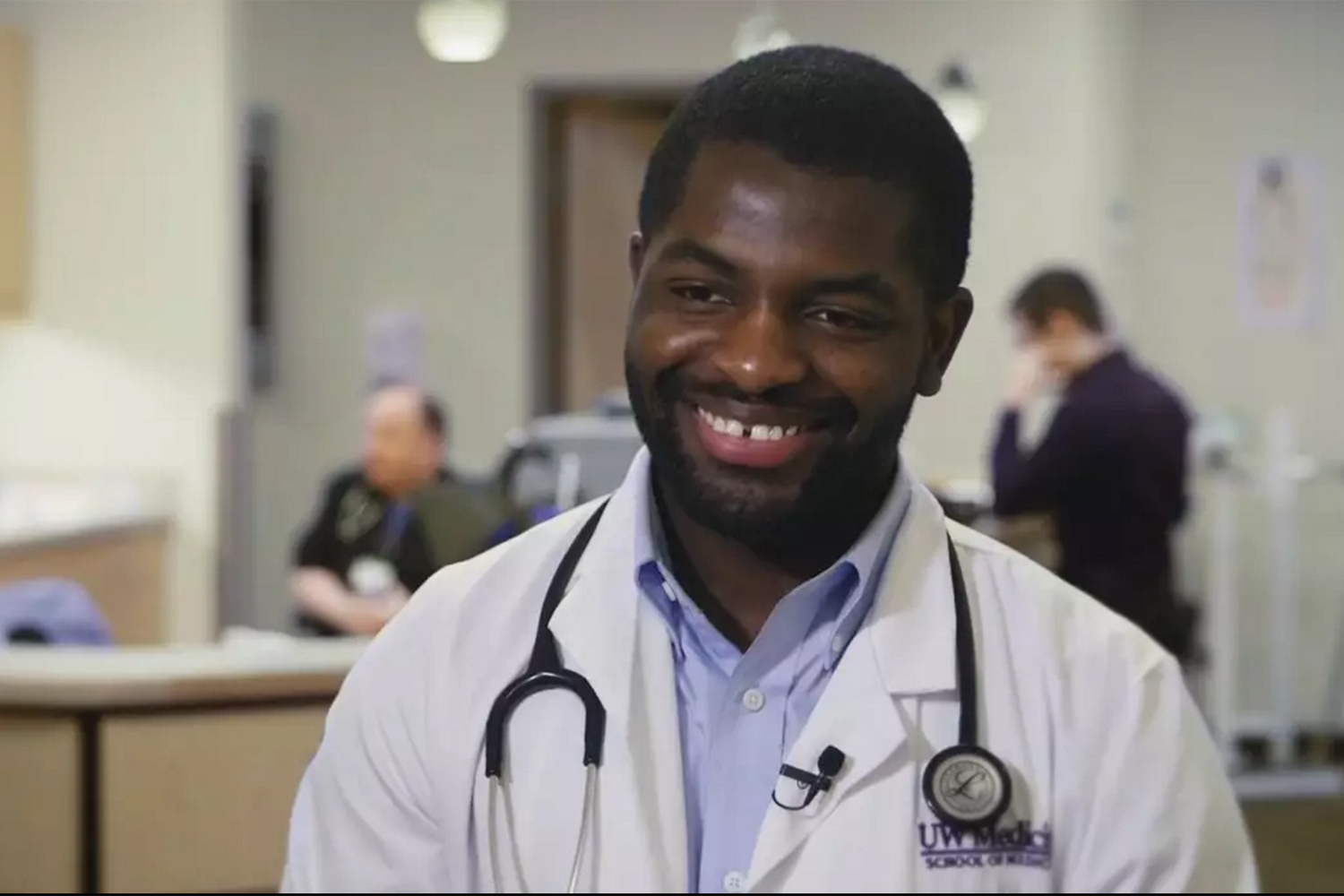“I imagine a world free from the threat of infectious diseases.”
— Augustine Ajuogu, third-year medical student, UW School of Medicine
“I want to live in a reality where we take vaccines for granted,” says Augustine Ajuogu. He grew up in Nigeria, where he saw firsthand the devastating effects of diseases like tuberculosis and malaria. In fact, he lost an uncle to TB.
Now a third-year medical student at the UW School of Medicine, Ajuogu has a goal.
“I’m focused on reducing the impact of treatable diseases, and the way I want to do that is through vaccines and drugs,” he says. “I imagine a world free from the threat of infectious diseases.”
Accelerating education
In 2007, Ajuogu and his family moved to the U.S.; they were refugees. He knew he wanted to pursue a career in medicine, but wasn’t sure how to go about it. His mother was a migrant worker, supporting seven children and sending money to Nigeria to care for relatives back home; there wasn’t much money for higher education.
Still, that didn’t discourage Ajuogu. In high school, he worked on creating a malaria vaccine at a STEM immersion program for underserved students. His postgraduate studies in biophysics and integrated immunology honed his interest in creating affordable vaccines for developing countries.
It’s an issue that everyone should care about, and Ajuogu uses the metaphor of the global village. “The world is highly connected,” he says. “Diseases like Ebola or Zika can spread swiftly, so global health is everyone’s concern.”
The circle of giving
UW Medicine and the University of Washington are committed to helping students like Ajuogu reach their potential – and so are many generous people who want to make a difference by donating to scholarship funds. Offering scholarships to students helps to relieve the burden imposed by the everyday costs of living and post-graduate debt.
“This scholarship has given me focus,” says Ajuogu. “It takes money out of the equation when it comes to doing something that I’m very passionate about.”
Ajuogu says scholarship contributors gave him opportunities he wouldn’t otherwise have had, and the positive impacts extend across generations – helping his family here and in Nigeria as well as creating better educational opportunities for future generations.
In turn, Ajuogu looks forward to offering financial assistance to the next generation of medical students. “Because I’ve been given a lot, I want to give back,” he says.
A future of doing good
Ajuogu now considers Washington his home, and he plans to stay in the Northwest – a hub of global health and infectious disease research – to continue his work. He also anticipates that his career will include traveling, working directly with patients around the world. “It’s important to be with the people who need help the most,” he says.
He hopes that, some day, TB and malaria will be a note in the medical history books – illnesses defeated, even eradicated, by modern medicine.
“Once you have a vaccine, it becomes cheap, it becomes accessible,” says Ajuogo. “We need meaningful interventions that save lives.”

